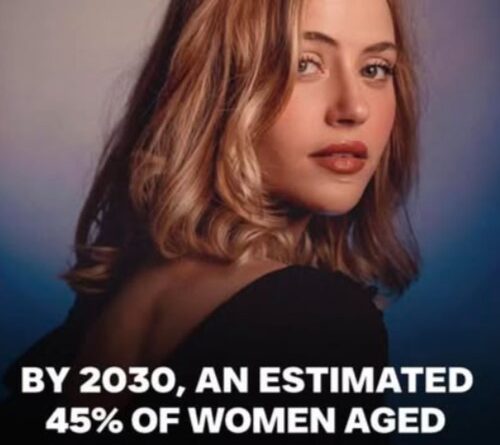Why Nearly Half of Women Will Be Single and Child-Free by 2030: Social, Economic, and Personal Factors
The landscape of modern adulthood is undergoing a profound transformation. By 2030, projections suggest that 45% of women aged 25–44 will be single and child-free—a statistic that not only reflects individual choices but also signals a deeper shift in societal norms, economic realities, and personal priorities.
For decades, women were often expected to follow a prescribed path: pursue education, marry, and start a family. Today, however, more women are redefining what success and fulfillment look like on their own terms. Social scientists point to multiple factors contributing to this trend.
Economic Independence and Career Focus
One of the most significant drivers behind this shift is financial independence. Women are entering the workforce in greater numbers than ever before, earning higher degrees, and pursuing careers that demand time, dedication, and energy. With this increased earning potential comes a new kind of autonomy—one that allows women to prioritize personal and professional growth over traditional familial obligations.
Many women are choosing to invest in themselves first. From buying property to traveling the world, building savings, and investing in long-term financial security, remaining single and child-free offers the flexibility to live life on their own terms.
Shifting Social Norms and Values
Cultural expectations surrounding marriage and motherhood have also evolved. Societies are becoming more accepting of diverse life paths, and the stigma once attached to being single or child-free is gradually diminishing. The rise of social media and global connectivity has amplified awareness of alternative lifestyles, empowering women to embrace choices that suit their ambitions rather than societal pressures.
Moreover, there is a growing recognition that fulfillment can come from multiple sources—personal development, friendships, creative pursuits, and career accomplishments—not solely from raising children or marrying young.
Health and Lifestyle Considerations
Another contributing factor is health and lifestyle awareness. Women today are more informed about reproductive health, career-life balance, and the long-term implications of early parenthood. Many consciously delay having children or choose not to have them at all, opting instead to invest in their mental, emotional, and physical well-being.
This trend also intersects with technological advancements, such as fertility preservation methods, which provide women with the freedom to extend the timeline for potential motherhood if desired.
The Role of Education and Personal Growth
Education plays a pivotal role in shaping life choices. Women with higher education levels often prioritize personal development, career advancement, and global experiences. This can lead to delayed marriage and childbearing, ultimately contributing to the increase in single, child-free women.
Higher education also exposes women to diverse philosophies, cultures, and ideologies, reinforcing the idea that there is no singular path to happiness. Knowledge empowers women to make choices aligned with their values rather than conforming to traditional expectations.
Impact on Society and Future Generations
The rise in single, child-free women is reshaping societal structures. Urban centers, workplace cultures, and consumer markets are adapting to meet the needs of independent women. Housing markets, for example, now increasingly cater to single professionals, while travel and leisure industries develop products tailored to women who travel solo.
Economically, this shift could have long-term implications for population growth, workforce composition, and retirement planning. However, it also highlights the potential for greater gender equality and the celebration of diverse lifestyles.
Conclusion
By 2030, the estimated 45% of women aged 25–44 who remain single and child-free will reflect a broader evolution in social, economic, and personal priorities. Far from being a decline in traditional values, this trend is a testament to women’s agency, independence, and the pursuit of self-defined fulfillment.
As society continues to embrace these changes, it is clear that the future of adulthood will be more diverse, flexible, and empowering for women everywhere.
